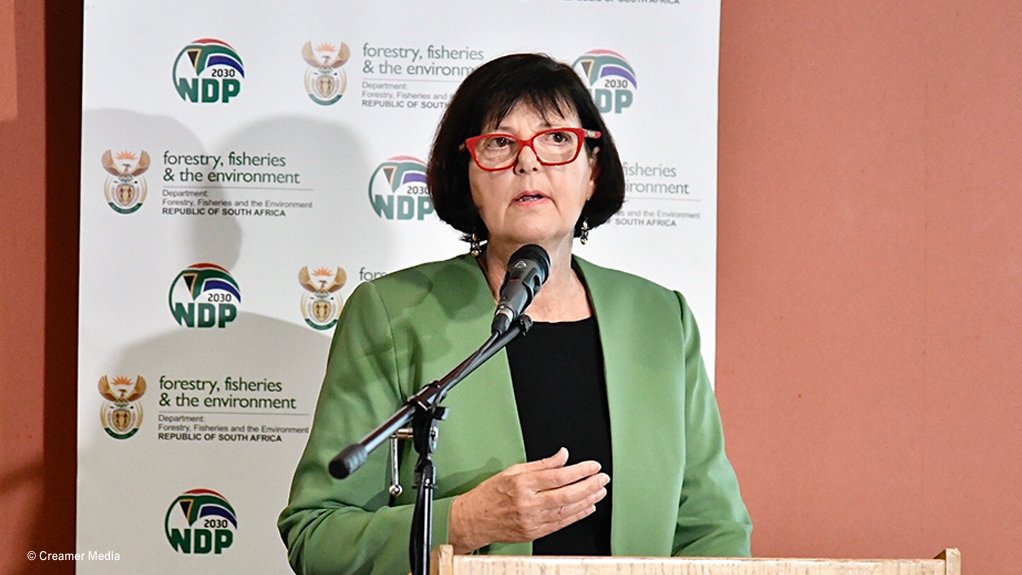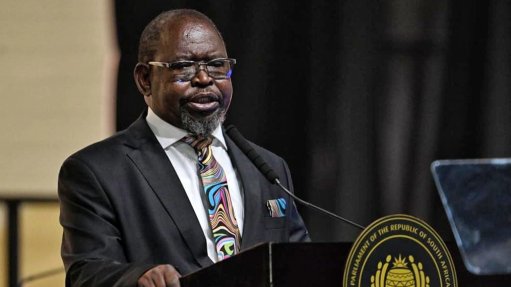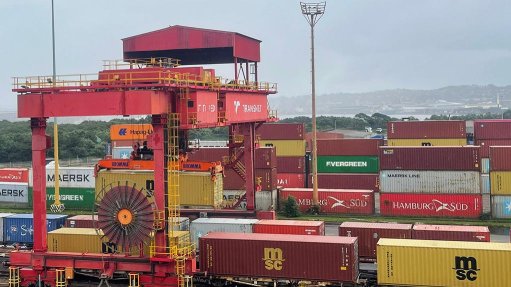Women are leading the fight to stop climate change
Over the past few years, international climate policy has been shaped largely by a close-knit group of politicians in the twilight of their careers. Now leaders from beyond the traditional US-Europe-China power center—some new to the international stage, others already veterans—are emerging. And women are at the forefront.
“Women are now the decision makers that can increase the likelihood of impactful decisions that actually stick,” says Jennifer Morgan, Germany’s special climate envoy. After all, she says, it was two women — Laurence Tubiana, France’s climate envoy, and Christiana Figueres, who ran the United Nations’ climate body — who helped broker the landmark Paris Agreement in 2015 to slow global warming.
With the world dangerously off track from the target of keeping temperature rise within 1.5C of pre-industrial times, a global plan to tackle climate change is needed more than ever. We take a look at some of the people who will be leading those efforts in the years to come.
MIA MOTTLEY
Few have changed the rules of the climate capital game more than Barbadian Prime Minister Mia Mottley. Through powerful speeches and radical proposals, she’s led a push to rewire the global financial system to make it easier for poor countries to have access to funds.
Mottley, 58, wants to overhaul the International Monetary Fund and the World Bank so less creditworthy countries can borrow more money to invest in protections against deadly weather events and be eligible for temporary debt relief when a disaster hits.
More than 40 world leaders met in Paris earlier this year to discuss her plan, known as the Bridgetown Agenda. The summit closed with support for more nimble IMF emergency funding, early warning systems for disasters, catastrophe insurance and pauses on debt repayments.
“She is an incredible speaker,” says Sebastien Treyer, executive director of French think tank Institut du Développement Durable et des Relations Internationales. “I have heard her speak many times, but every time I am emotionally taken again.”
Island nations play an outsized role in climate talks because their very existence threatened by rising seas and more frequent and forceful cyclones. But it is Mottley who has taken center stage in pitching the solutions for developing countries, while allying herself to the likes of French President Emmanuel Macron to win support.
Her Bridgetown Initiative — a blueprint to overhaul the global financial system to help heavily-indebted climate-vulnerable countries — was forged in the aftermath of Hurricane Maria in 2017. After watching the category 5 storm ravage the neighboring island of Dominica, Mottley and her college buddy Avinash Persaud, a development economist, set about drawing up a plan to mitigate the impacts of future storms fueled by global warming.
Mottley wants to overhaul the so-called Bretton Woods institutions, the International Monetary Fund and the World Bank (as well as their multilateral development bank successors), so that they lend more money to less credit-worthy countries. Those loans would help fund sea defences and provide temporarily debt relief when a disaster hits. Mottley and Persaud have also suggested a climate levy on shipping or financial transactions could help.
The proposals are radical, but they’re starting to gain traction among developed countries that have long been resistant to paying out more. More than 40 world leaders met in Paris earlier this year to work out how the Bridgetown Agenda might become reality. The summit closed with a movement toward more nimble emergency funding from the IMF, early-warning systems for disasters, catastrophe insurance triggered automatically by extreme conditions and pauses on debt repayments.
JENNIFER MORGAN
A longtime climate activist, Jennifer Morgan has attended every COP summit and spent almost three decades helping lead nonprofits such as Greenpeace and the World Resources Institute. But last year the 57-year-old moved into the political arena herself, reporting directly to Germany’s foreign minister as the country’s climate representative. Morgan, a New Jersey native who’s lived in Germany since 2003, was a surprising pick for a country that rarely appoints foreigners to its top ranks.
She says her past as a heavy-hitter activist hasn’t hindered her. “When you’re an NGO, your job is to be out there, pushing hard and provoking,” she says. “I don’t feel that I am constrained in speaking truth to power, but I have to do it in a different manner. Words matter even more.”
Morgan was instrumental in the setting up of a new fund to pay for climate damages at last year’s COP in Sharm El Sheikh, Egypt. Yet she was left visibly angry at the end of the meeting over the lack of progress on curbing emissions.
It’s imperative that more is done this year, she says, both on slashing carbon pollution and getting countries like China and Saudi Arabia to pay for the impacts caused in part by their emissions. She points out that China is now the world’s second largest economy and Saudi Arabia one of the biggest oil producers. “We don't live in 1992 anymore,” she says.
Morgan’s profile is set to rise at this year’s COP28 meeting in Dubai now that Frans Timmermans has stepped down as the European Union’s climate chief. “We need a transformational roadmap,” she says. “We need to understand the moment we're in right now for the future of humanity — that’s what motivates me.’’
EVE BAZAIBA
Without the Congo Basin to act as a vast carbon sink, humanity will lose the fight against global warming. Ève Bazaiba, 58, wants to make sure rich countries know that—and pay to defend it.
In two and a half years on the job, the Democratic Republic of Congo’s minister of environment has become a fiery voice in climate talks on behalf of emerging economies fighting for compensation to protect their environment.
At the top of Bazaiba’s list of demands are higher payouts for carbon credits bought by companies and countries seeking to offset their pollution. And she has some bargaining power: Congo is home to the world’s second-biggest rainforest and the largest tropical peatlands.
Positioning herself as a pragmatist, Bazaiba promotes Congo as a “solution country” in the fight against climate change with its forests. The nation has the world’s largest hydropower potential and vast reserves of minerals such as copper and cobalt that are needed to roll out green technologies. Bazaiba also supports opening up parts of the rainforest to oil drilling, saying the government can still protect the environment, a position that’s made her controversial among environmentalists.
But she’s been consistent in her view that no global approach to slowing Earth’s warming can succeed without Congo. “There’s not a single room in the world — north, south, east, west — that can speak about climate questions without the Democratic Republic of Congo,” she said on a recent radio interview.
BARBARA CREECY
Bazaiba’s South African counterpart Barbara Creecy has also proven herself to be a deft negotiator when it comes to climate finance. In 2021, she helped broker a groundbreaking deal with developed nations including the US and UK to transition her country away from coal.
Since taking the post in May 2019, the 65-year-old has been a vocal advocate for the developing world. There’s an “injustice that lies right at the heart of the climate crisis, which is the fact that the African continent is responsible for less than 2% of historical emissions,” Creecy says. “But this is a continent that’s gravely affected by climate change.”
The former anti-apartheid activist, a dark horse candidate to become her country’s finance minister, has argued forcefully for more financial support to help developing nations adapt to a warmer planet and cut emissions. At the same time, she’s urged other emerging economies to focus on solutions rather than grievances over broken promises.
“Let’s stop harping on and on about the $100 billion” a year that rich countries promised to deliver by 2020, she says. “Let’s actually talk about the post 2024 environment. What are the new goals? Where are we going to find new public finance?”
MARINA SILVA
Now in her second stint as Brazil’s environment and climate change minister, 65-year-old Marina Silva has spent a lifetime devoted to nature. The daughter of rubber tappers—hailing from one of the country’s most remote and impoverished states, nestled deep in the Amazon—she brings lived experience of the impacts of deforestation on communities that depend on the rainforest.
As part of Luiz Inácio Lula da Silva’s left-wing government, she’s busy repairing the country’s green credentials following the ouster of Jair Bolsonaro, one of the world’s most unapologetic anti-environmentalists. Silva describes restoring protections for the rainforest as a “postwar recovery.” Since Lula took office in January, there’s been a 49.7% reduction in deforestation in the Amazon.
“There are things that we have to let go of, such as the idea that Brazil is an agricultural power because it covers a large area,” Silva says. “This idea has to be abandoned.”With Brazil set to lead the Group of 20 next year and host the COP30 summit in 2025, Silva has the opportunity in Dubai to stake out the nation’s positions on climate change before it takes the spotlight on the international stage.
Silva’s background gives her a unique voice, says Rachel Cleetus, senior economist and policy director at the Union of Concerned Scientists. “She comes from a perspective of not just understanding the issues at play, but also understanding the role of the people, especially the Indigenous people.”
OTHERS TO WATCH
Tina Stege – The 47-year-old climate envoy for the Marshall Islands, one of the most vulnerable nations to global warming, is an instrumental voice in the campaign to phase out fossil fuels.
Maisa Rojas – A geophysics professor and contributor to major UN climate reports, Rojas, 51, brings a wealth of scientific expertise to her job as Chile’s environment minister.
Wopke Hoekstra – The EU’s new climate chief, who’s 48, is a relatively unknown quantity in environmental circles, but he comes with a reputation for fiscal prudence from his tenure as Dutch finance minister.
Teresa Ribera –The charismatic environment minister for Spain, 54, is at the forefront of EU green policymaking, with her country holding the rotating presidency this year.
Kristin Tilley – Australia’s climate ambassador, 48, is trying to give her country a greener image and pushing for it to host COP31.
Steven Guilbeault – Canada’s 53-year-old climate minister, another Greenpeace alum, will be in focus at COP28 after wildfires ravaged much of his country this year.
Article Enquiry
Email Article
Save Article
Feedback
To advertise email advertising@creamermedia.co.za or click here
Press Office
Announcements
What's On
Subscribe to improve your user experience...
Option 1 (equivalent of R125 a month):
Receive a weekly copy of Creamer Media's Engineering News & Mining Weekly magazine
(print copy for those in South Africa and e-magazine for those outside of South Africa)
Receive daily email newsletters
Access to full search results
Access archive of magazine back copies
Access to Projects in Progress
Access to ONE Research Report of your choice in PDF format
Option 2 (equivalent of R375 a month):
All benefits from Option 1
PLUS
Access to Creamer Media's Research Channel Africa for ALL Research Reports, in PDF format, on various industrial and mining sectors
including Electricity; Water; Energy Transition; Hydrogen; Roads, Rail and Ports; Coal; Gold; Platinum; Battery Metals; etc.
Already a subscriber?
Forgotten your password?
Receive weekly copy of Creamer Media's Engineering News & Mining Weekly magazine (print copy for those in South Africa and e-magazine for those outside of South Africa)
➕
Recieve daily email newsletters
➕
Access to full search results
➕
Access archive of magazine back copies
➕
Access to Projects in Progress
➕
Access to ONE Research Report of your choice in PDF format
RESEARCH CHANNEL AFRICA
R4500 (equivalent of R375 a month)
SUBSCRIBEAll benefits from Option 1
➕
Access to Creamer Media's Research Channel Africa for ALL Research Reports on various industrial and mining sectors, in PDF format, including on:
Electricity
➕
Water
➕
Energy Transition
➕
Hydrogen
➕
Roads, Rail and Ports
➕
Coal
➕
Gold
➕
Platinum
➕
Battery Metals
➕
etc.
Receive all benefits from Option 1 or Option 2 delivered to numerous people at your company
➕
Multiple User names and Passwords for simultaneous log-ins
➕
Intranet integration access to all in your organisation




















